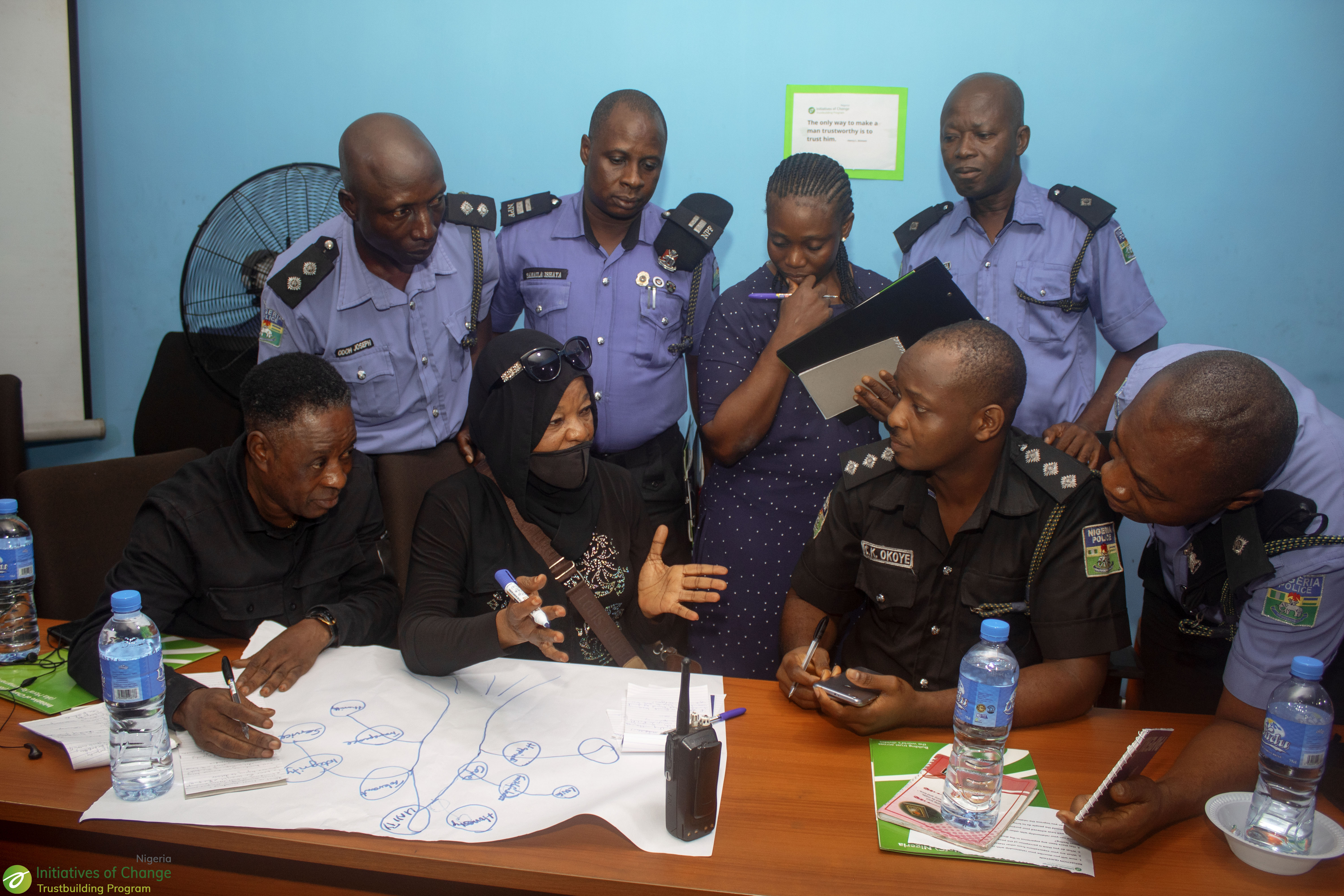Building trust across the world's divides: Case studies
The TBP shares case studies and best practices about building trust in divided communities - with examples from some of the twelve current trustbuilding teams.
Indonesia
Indonesia faces increased intolerance and divides among people of different religions and ethnicities and the threat of violent extremism. The trustbuilding work in Indonesia aims to inspire mutual trust and understanding to increase social cohesion and avoid radicalisation. 'After participating in the Trustbuilding Camp, I finally feel free from the fear caused by the negative stigma I held toward people different from me in religion, tribe, and culture.' Trustbuilding Camp participant
2. Acknowledge historical wounds
An essential part of the trustbuilding process is understanding the power of history and memory in shaping community narratives. We work with groups to to deconstruct false narratives while honoring different stories as steps in creating new shared narratives and building movements to address the legacies of inequity. This training in transforming unhealed wounds and wounded memory includes issues of identity and culture, trauma awareness and resilience, and the role of forgiveness and acts of repair in the reconciliation process.

Kenya
Tensions and mistrust within interfaith and interethnic communities have led to violent extremism in Kenya. Mutual understanding and connection are created through organising honest dialogues and outreach activities. The trustbuilding team organised the first ever "acknowledging history walk" at Garissa University. 'We walked through the classes where terrorists massacred 148 students in 2015. Our walk was concluded at the Memorial Garden with a reflective healing circle as participants pledged to stay committed to building trust with people of different faiths. The Trustbuilding Program is a powerful tool that is helping this community of different faiths to not only live peacefully with each other but to trust each other.' -Kenya's Trustbuilding Program Project Manager. The Trustbuilding Program in Kenya is the only NGO entrusted to work at Garissa University.
3. Inclusive dialogues
We enable groups to learn and practice skills for initiating and guiding honest conversations on complex subjects that cause community divisions - a step towards building trust among stakeholders. 'It requires a readiness by all stakeholders to hold themselves, their communities and institutions accountable, and to be willing to change where change is needed.' (Corcoran). These honest conversations include all stakeholders in the search for solutions. It requires skills in creating a welcoming space, deep listening, designing non-judgmental questions that elicit storytelling and reveal underlying issues, and the ability to be a non-anxious presence as a facilitator.

Nigeria
In Nigeria, the trustbuilding team builds trust between authorities and the people of the community through dialogues and workshops that bring together aggrieved communities and members of the police force. An honest conversation was hosted with community stakeholders and the police, which 210 people attended. Participants shared positive aspects about the police, as well as their concerns, and there was a Q&A session between police and community members. Police sought the community's cooperation; they commented that they had never been part of such a discussion before. One officer shared that his mindset regarding service delivery in the community had shifted. There were requests for ongoing meetings to sustain the trustbuilding efforts. The fact that these two deeply opposed groups are engaging and listening to each other is significant.
4. Building diverse teams
In each country where the Trustbuilding Program works to foster social change, we focus on building and sustaining multi-sector teams, partnerships and networks composed of representatives of all sectors. This element of the methodology builds on the above key components and is critical for the strategic development of the trustbuilding work.
The most needed changes in our societies require 'courage and trust-based collaboration that can only be achieved by individuals who have the vision, integrity, and persistence to call out the best in others and sustain deep and long-term efforts.' Rob Corcoran

Nepal
The disconnection between Madhesi and Pahadi communities in Nepal occasionally sparks violent conflict. The trustbuilding work in Nepal focuses on reinstating harmony and understanding between the different multicultural and multilingual communities. The trustbuilding team built ten solid partnerships and engaged a broad representation of civil society to build trust between Madesh and Pahadi communities, for example:
- Women - running peace circles for the women in the – often rural - targeted communities who don't speak out in community dialogues. The peace circles give them a voice and a safe space to talk.
- Government - an MOU with a local government authority to deliver trustbuilding workshops for government officials and youth in their district.
- Media - runs dialogues for media representatives and journalists on portraying the Madesh ethnic group fairly and equally (moving away from stigmatisation and discrimination).
- Youth - inspires, trains and connects youth networks to be active trustbuilders.
Crucial aspects for successful trustbuilding work
The experience of the Trustbuilding Program demonstrates that incorporating certain aspects into a project is likely to result in an effective outcome.
These aspects include:
- Diverse cohort representing multiple sectors of the community
- Diverse faculty team
- Input by respected authorities to provide critical data
- Focus on the local/regional historical context
- A mix of didactic, experiential and interactive activities
- Small informal group and one-on-one conversation
- Conducive 'container' or space where participants feel comfortable
- Adequate time for personal reflection
- Several opportunities for the cohort to come together over the course of several weeks or months, recognising that the process of trustbuilding takes time and that there are many skills and insights to learn and absorb
Trustbuilding Awards
To recognise the important trustbuilding work teams from outside and inside of IofC are conducting in their respective communities, IofC organises the first Trustbuilding Awards. There are three awards to win:
- Trustbuilding Award of the Year (individual/ organisation)
- Young Trustbuilder of the Year (individuals younger than 30)
- Lifetime Achiever (individuals)
Apply now or nominate someone else! Applications will be accepted until 30 April 2023, 11:59pm US EDT.